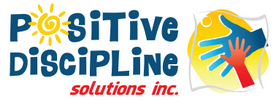Get What you Give
Did you know that how you say something to a child to a large extent determines their response.
 In Module Two of my Discipline with Influence Online Parent Program I outline some key facts about brain develop and function that parents need to be aware of when it comes to discipline and interacting with their children.
In Module Two of my Discipline with Influence Online Parent Program I outline some key facts about brain develop and function that parents need to be aware of when it comes to discipline and interacting with their children.
In this post, I’m going to share one of those brain facts that I outline in the program – that being that our brains have something called mirror neurons. Why this matters is that the existence of mirror neurons needs to impact how we communicate with children (or with anyone for that matter).
Mirror Neurons are sometimes referred to as “monkey see, monkey do” neurons. They are one of the reasons that what you do is often more important than what you say. Mirror neurons not only simulate other peoples’ actions, but the emotions and intentions behind those actions as well.
Think of it. If someone smiles at you, the natural reaction is to smile back. This is because your mirror neurons for smiling fire and give you a sensation or feeling associated with smiling.
Understanding this key information can help to guide us in our interactions with our children and others.
If you, as the parent, can maintain your cool and calm, then you will be more liable to invite that same calmness from your child and at the same time invite more cooperation and positive behaviour. Conversely if you are stressed, angry or upset, that is what you will invite from your child.
The same holds true for when your child is exhibiting “big emotions”. If your child is upset, we are apt to unconsciously experience that same emotion of upset and convey that back to them. And it becomes a vicious circle!
But when you can catch and calm yourself or practice mindfulness in your response to your child’s challenging behaviour and emotions, you can de-escalate the behaviour and the emotions – and in turn reach a resolution much quicker.
I advise parents to adopt a 3 to 5 second rule – that is to take at least 3 – 5 seconds before they react to their child’s challenging behaviour. That small amount of time is enough time to say to yourself – “Stop, Pause and Think” – think about how you can respond in a constructive way vs. react.
The difference in the meanings of the words “respond” and “react” are subtle. I am using the word “respond” to apply to a constructive and thoughtful response. I’m using the word “react” to imply being more impulsive and perhaps combative.
Most of us react, often with anger or frustration to challenging behaviour, rather than respond in a mindful way.
It takes practice, but it’s so much more constructive if we stop and take that 3 to 5 second pause, so that we can respond in a supportive way.
Just another way to be a parent of influence!
